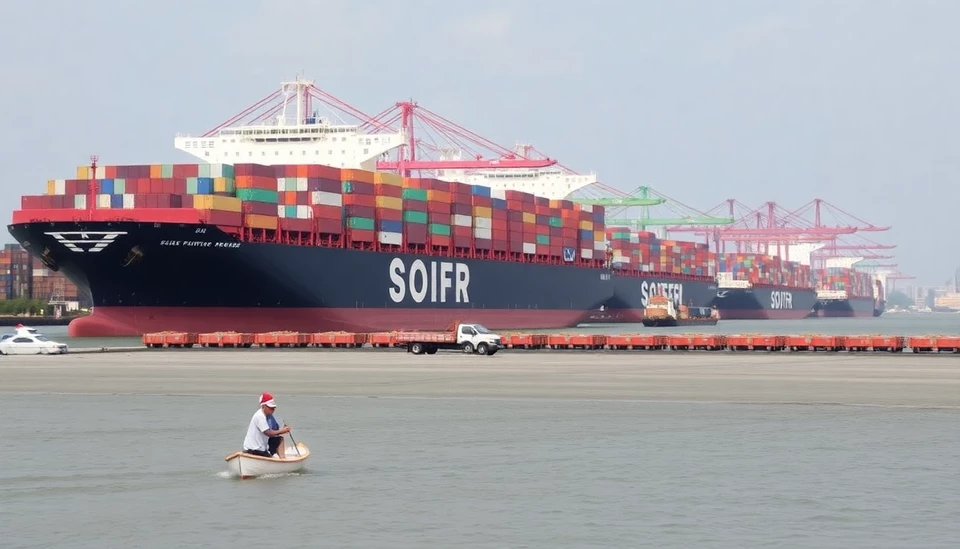
Recently released preliminary trade statistics from South Korea have revealed troubling signs for the nation’s export sector, with expectations falling short in comparison to previous years. The data highlights a mere 3.7% increase in exports year-on-year for January, emphasizing a slowdown relative to the growth seen in the same period last year. This decline is particularly concerning as South Korea's economy heavily relies on international trade and exports, especially in technology and automotive sectors.
In further detail, the total exports amounted to approximately $54.8 billion, displaying a significant disparity against the $57 billion forecasted by market analysts. This unexpected slump has raised alarms among economists and stakeholders alike, prompting discussions about the potential underlying issues affecting the trade landscape. Analysts had anticipated a more robust performance, especially given the country’s position as a key player in semiconductor production, a critical driver of the regional and global economy.
The figures reveal a steep decline in shipments of key industries, particularly semiconductors, which posted a 12.7% drop in exports. This sector has been a fulcrum of South Korea’s economic growth, and the decline raises questions about the future competitiveness of the nation in the global semiconductor space, exacerbated by ongoing geopolitical tensions and a slowing global economy.
Moreover, other key sectors including automobiles and petrochemicals also showed signs of stagnation, contributing further to the overall slowdown in export growth for January. The slowing demand from China, one of South Korea’s largest trading partners, has been cited as a contributing factor, with many businesses anticipating weaker demand as they adjust their forecasts moving into the Lunar New Year period.
The South Korean government and the Bank of Korea are reportedly monitoring the situation closely, recognizing the vital role of exports in stabilizing the domestic economy. With inflation worries also lingering, there could be ramifications for fiscal and monetary policies as policymakers grapple with how best to prop up the exports that have become a lifeline for the economic framework.
As concerns mount over the waning trade figures, many industry experts are calling on the government to bolster its support for exporters, particularly in areas concerning innovation and technological advancement. There are growing calls for targeted measures that can enable South Korean industries to navigate through the turbulent export environment and emerge stronger against global competitors.
The future remains uncertain for South Korea’s trade prospects, but as the month progresses and organizations release their comprehensive analyses, there is a collective hope within the business community that a strategy can be implemented to rejuvenate the essential export sector.
In conclusion, the latest preliminary trade data underlines a pivotal moment for South Korea, as it faces mounting pressures from international markets and seeks to safeguard its economic interests in an increasingly competitive landscape.
#SouthKoreaExports #TradeData #EconomicGrowth #SemiconductorIndustry #GlobalTrade
Author: Rachel Greene




